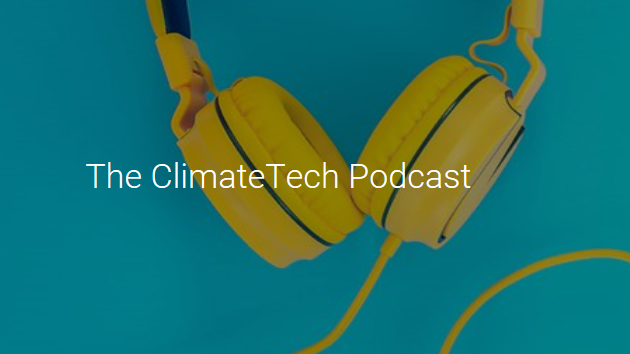14 apirila, 2020
Published by Teresa Gimeno at 14 apirila, 2020
Categories
Nature aldizkarian argitaratutako azterlan batek erakusten du litekeena dela baso helduek ezin izatea atmosferara giza jardueraren ondorioz isuritako CO2 gehigarria xurgatu, eta, beraz, isuri horiek murrizteko lan gehiago egin beharko dugu. Ikerketan Teresa Gimenok, BC3ko Ikerbasque ikertzaileak, parte hartu du.
15 apirila, 2020
Published by BC3Research Anil Markandya at 15 apirila, 2020
Categories
BC3 former director Anil Markandya participate in the The ClimateTech Podcast of UNEP DTU Partnership, a leading international research and advisory institution on energy, climate and sustainable development. In this podcast series, experts and practitioners present their views and insights on specific technologies or sectors, that can help address the climate crisis, and more importantly, how we can speed up its implementation in the developing world. The programme participate Anil Markandya, Former Director of the Basque Centre for Climate Change, Richard Klein, Senior research fellow at the Stockholm Environment Institute and Jessica Troni, Head of the adaptation unit at UN Environment
16 apirila, 2020
Published by BC3Research at 16 apirila, 2020
Categories
Nature Ecology & Evolution aldizkarian argitaratutako ikerketa baten arabera, ekosistema degradatu batek epe luzerako (hamarkadetako edo mendeetako) leheneratze-estrategia behar du, leheneratzeak izan ohi duen arrakasta mugatua hobetzeko. BC3ko eta Harvardeko Unibertsitateko David Moreno-Mateos eta BC3ko Asun Rodriguez-Uña ikertzaileek ikerketan parte hartu dute.
16 apirila, 2020
Published by BC3Research David Moreno Asun Rodríguez at 16 apirila, 2020
Multiple large-scale restoration strategies are emerging globally to counteract ecosystem degradation and biodiversity loss. However, restoration often remains insufficient to offset that loss. To address this challenge, we propose to focus restoration science on the long-term (centuries to millennia) re-assembly of degraded ecosystem complexity integrating interaction network and evolutionary potential approaches. This approach provides insights into eco-evolutionary feedbacks determining the structure, functioning and stability of recovering ecosystems. Eco-evolutionary feedbacks may help to understand changes in the adaptive potential after disturbance of metacommunity hub species with core structural and functional roles for their use in restoration.




